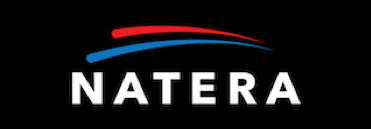Enforceability of Class Action Waivers in the Transportation IndustryHarold P. (Hal) Coxson, Shareholder, Ogletree Deakins (Washington D.C.) Motor carriers are advised to temper their enthusiasm regarding the Supreme Court’s recent class action waiver decision in Epic Systems, Inc. v. Lewis. The decision will have limited application in the trucking industry due to the Section 1 exemption in the Federal Arbitration Act (FAA) for contracts of employment with transportation workers. Section 1 of the FAA exempts “contracts of employment for seamen, railroad workers, or any other class of workers engaged in foreign or interstate commerce.” 9 U.S.C. 1. Thus, pursuant to the FAA’s Section 1, if motor carriers and their driver employees decide to enter into an agreement to arbitrate employment disputes in their contracts of employment and waive class and collective action lawsuits, they should not expect those agreements to be enforced under the FAA. See Circuit City Stores, Inc. v. Adams, 532 U.S. 105, 119 (2001) in which the U.S. Supreme Court’s decision provided that “Section 1 exempts from the FAA only contracts of employment of transportation workers.”
However, an important, related and hotly contested issue remains open for motor carriers as to whether the “transportation worker” exemption set forth in Section 1 of the FAA also includes agreements with independent contractor / owner-operator drivers. In many cases, a motor carrier’s arbitration agreement with independent contractors includes a class and collective action waiver, which may be an effective way to prevent massively expensive misclassification lawsuits from being litigated on a class action basis. The Circuit Courts are split on the issue. The First Circuit recently decided against the enforceability of an arbitration agreement with independent contractors by New Prime, Inc. (an interstate motor carrier which operates both through driver employees as well as independent contractors). The basis of the First Circuit’s opinion was the FAA’s Section 1 exemption.
On February 26, 2018, the U.S. Supreme Court granted certiorari in the case to decide whether Section 1 of the FAA exemption for “transportation workers” also applies to independent contractor / “owner-operators.” The case is New Prime, Inc. v. Oliveira, No. 17-340.
The central issue in New Prime is “whether the FAA’s Section 1 exemption, which applies on its face only to “contracts of employment,” is inapplicable to independent contractor agreements.” A related threshold issue is whether applicability of the arbitration agreement pursuant to a mutually agreed upon delegation to arbitration, must be decided only by arbitration.
The opening brief on the merits by Petitioner New Prime, Inc. was filed on May 14, 2018, and amicus curiae briefs in support of the Petitioner were filed one week later on May 21, by the American Trucking Associations, the U.S. Chamber of Commerce, the Customized Logistics and Delivery Association, the Cato Institute, and the New England Legal Foundation. The Respondent’s opening brief on the merits is due on July 11, 2018.
Petitioner and amici argue that independent contractor agreements are not “contracts of employment” within the meaning of Section 1 of the FAA, and that to prevent motor carriers and independent contractors access to arbitration would violate the strong federal policy favoring arbitration, as long upheld and reinforced by Supreme Court precedent. See, e.g., Gilmer v. Interstate / Johnson Lane Corp., 500 U. S. 20, 24 (1991); Mitsubishi Motors Corp. v. Soler Chrysler-Plymouth, Inc., 473 U.S. 614, 631 (1983)(“emphatic federal policy in favor of arbitrable dispute resolution.”) They argue that the Section 1 exemption must be given a “narrow construction” and “precise reading.” Circuit City Stores v. Adams, 532 U.S. 105, 118, 119 (2001). It applies to employer-employee relationships, not independent contractor agreements. Further, they argue, as a threshold matter, where the parties have entered into an arbitration agreement in which they delegate disputes to arbitration, such as the arbitrability of the agreement itself, such issues must only be determined by arbitration.
The Court’s future decision hopefully will resolve the FAA’s protection for arbitration of independent contractor agreements which have become fairly prevalent in the trucking industry. In effect, for motor carriers the Court’s decision in New Prime, Inc. could be the equivalent of the Court’s decision for other industries in Epic Systems, Inc. – an enforceable right to enter into mandatory arbitration agreements with class action waivers. That would truly be cause for celebration among motor carriers.
This transmission is intended only for the proper recipient(s). It is confidential and may contain attorney-client privileged information. If you are not the proper recipient, please notify the sender immediately and delete this message. Any unauthorized review, copying, or use of this message is prohibited.
|

